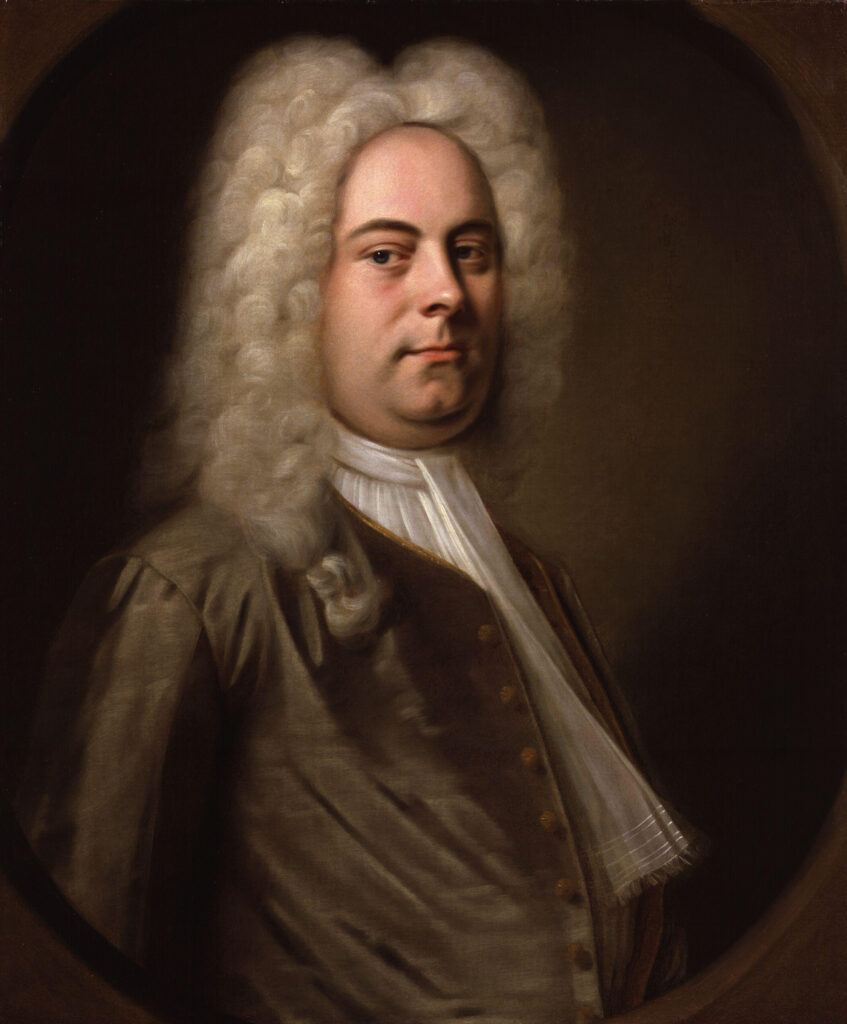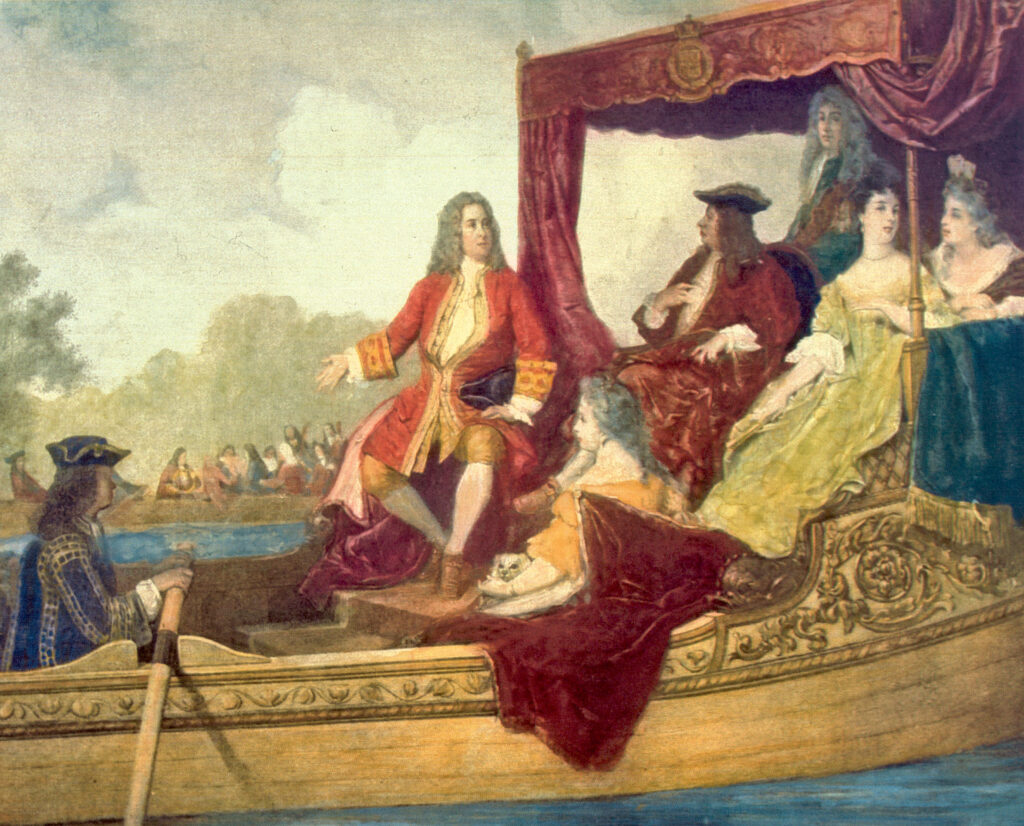A calendar entry that unites the qualities of water with the qualities of art always seems appropriate, even though picking a particular day to honor this relationship is a bit problematic. Water symbolizes so much—tranquility or excitement, beauty or terror, peacefulness or power. I can imagine no one who doesn’t think fondly of the rejuvenating experience of a day on, in, under, or near the water. Water is the inspiration for art, poetry and music. And, so, symbolically, I have chosen today to represent the link between water and art—July 17, 1717, when composer George Frideric Handel first performed the pieces we now call Water Music.

Handel was a classical composer of the Baroque age and style—lots of ornate music played with lots of instruments and lots of gusto. He was born in 1685 in Germany and by age 25 had earned a reputation as one of the great young composers of operatic music in Europe. His continuing fame stems mostly from his masterpiece, Messiah, the towering composition usually played at Christmas or Easter to celebrate the life of Jesus of Nazareth.
Water Music is an entirely different sort of composition, for a very different sort of occasion and purpose. Handel had moved to London in the early 1700s, given permission for a short stay by his patron, the German Elector of Hanover. However, Handel stayed much longer than his patron expected and took up permanent residence in London. Unfortunately for Handel, the vagaries of royalty caused a bizarre succession of power, and his patron became King George I of England in 1714. Handel worried what would happen when he and the King met again.

But, by 1717, King George was suffering a lack of popularity. His advisors came up with an idea to change his reputation: Have a big boating party on the River Thames. King George agreed, and added that he wanted new music for the trip. The idea was for the king and his friends to float upstream with the tide on a “barge” (think luxury yacht, not a coal-ferrying bathtub) from the government docks in central London upstream to Chelsea, where they would have dinner and float back down after the tide changed. Handel was secretly given the musical task: Write and conduct a composition to be played on an accompanying barge to entertain the king and his guests.
The boating party was a huge success, with many other boats accompanying the king’s barge. “…so great a Number of Boats, that the whole River in a manner was cover’d,” wrote a contemporary reporter. Handel composed a large number of individual pieces (somewhere between 13 and 20, reports vary), some quite loud to be played when the barges drifted apart, some softer for when the barges drifted together. Today the individual pieces are usually played in three “suites,” but the order of their performance on the original trip is unknown.
King George loved it! So much so that he made the performers play over and over on the trip upstream and again downstream, in the early hours of the next day. Again, reports differ but probably the entire set was played through at least three times, perhaps as many as six times. Handel’s patronage was restored—only now he was the composer to the Court of the King of England!
One final piece of mystical musical history. The date of the event and the music’s premier performance was 7-17-1717, a palindrome to make numerologists salivate. Go sit by some water and mediate on that.
References:
Classical notes. George Frideric Handel—Water Music and The Music for the Royal Fireworks. Available at: http://www.classicalnotes.net/classics/watermusic.html. Accessed July 17, 2017.
GFHandel.org. George Frideric Handel, 1685-1759. Available at: http://gfhandel.org/index.html. Accessed July 17, 2017.
Kramer, J. D. 1988. Listen to the Music. A Self-Guided Tour Through the Orchestral Repertoire. Schrimer Books, New York. 816 pages.
Schwarm, Betsy. Water Music. Encyclopedia Britannica. Available at: https://www.britannica.com/topic/Water-Music. Accessed July 17, 2017.
